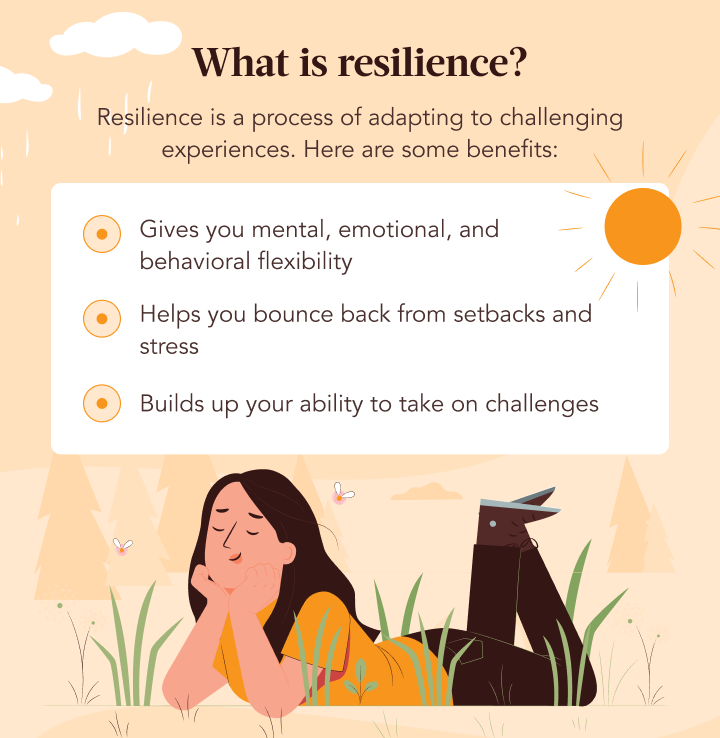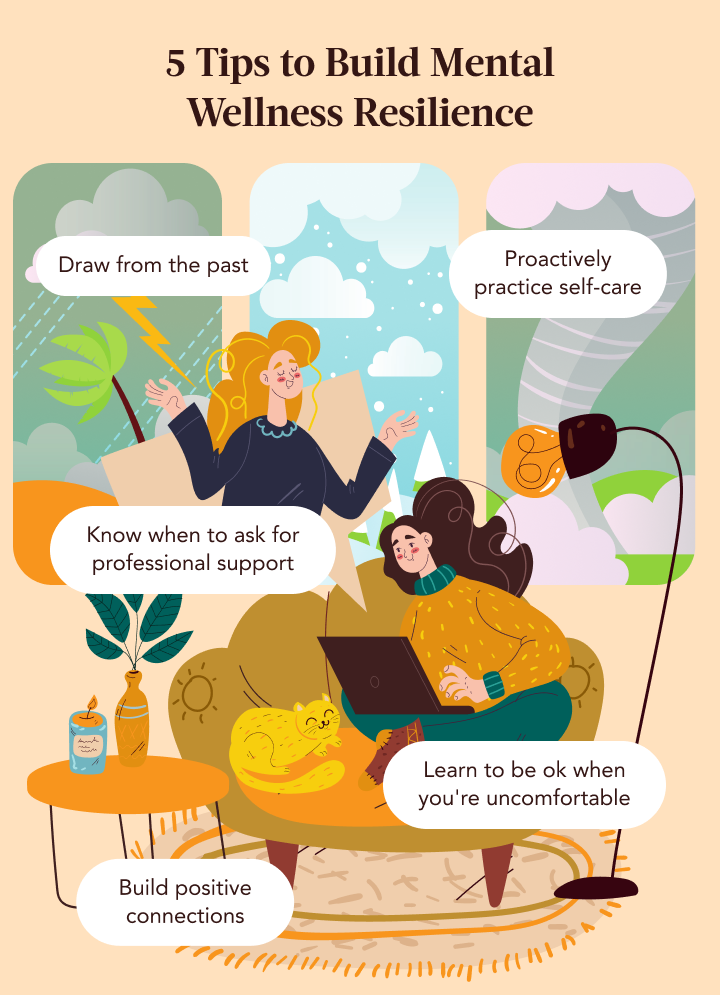5 Tips to Build Mental Wellness Resilience

Mental wellness is an ongoing journey that requires continued commitment. It’s not linear. Many people experience days that are more challenging than others. Learning the skills to cope in a healthy way is both an important life skill and a key aspect of mental wellness.
Recognizing that not every day will feel the same, it’s important to build resilience to improve and maintain mental wellness. Resilience is the process of adapting to difficult or challenging life experiences through mental, emotional, and behavioral flexibility and adjusting to external and internal demands.
The ability to bounce back from setbacks, trauma and stressors is an example of resilience. For example, the COVID-19 pandemic had serious consequences for both physical and mental health of many people leading to NAMI and CDC developing and distributing resources to help people cope.

Recent research shows that resilience is a skill that can be developed over time. Here are 5 tips to help you start building mental wellness resilience:
1. Build positive connections
Surround yourself with support by establishing strong relationships with friends and loved ones who are there for your good and bad days. A supportive social circle provides a safety net to help you be resilient during challenging times and periods of uncertainty.
2. Proactively practice self-care
An important step toward holding yourself accountable is making a plan and routine. Small changes to your daily life can add up to make a positive impact on mental wellness. Go beyond a spa day and determine what refreshes you to maximize impact – it could be a 30-minute walk or incorporating a 10-minute stretch in the mornings before you start your day.
3. Draw from the past
Your past experiences can teach you how to navigate future experiences. You learn to recognize when something needs to be changed or done which builds resilience over time. Learn what keeps you hopeful and keep a mental health and emotional wellness journal to identify trends or patterns that provide insight to support your mental wellness resilience.

4. Learn to be okay when you’re uncomfortable
Sometimes bad things happen. Part of resilience is the ability to weather the storm. Make a plan for when hard days hit so you are able to get through them. Reach out to your support system, stick to your self-care routines, and remember that your situation and emotions are temporary.
5. Know when to ask for professional support
Don’t delay seeking clinical support or minimize your experiences to try to appear strong. Everyone responds to negative stress and experiences the world differently. Asking for help when needed means you’re invested in your mental wellness journey. It can be useful to have an outside perspective on what you’re facing to determine the next best step when you feel overwhelmed.
Interested in learning more about building your resilience? Working with a Frankly Care Guide can help you learn the skills needed to build mental wellness resilience. Care Guides listen to understand your unique situation and develop a plan designed with your goals in mind.
Medically reviewed by Chelley Balke, PMC-MSN, NP-C
Written by Frankly Staff
Last updated 1/17/2023

Comments ()